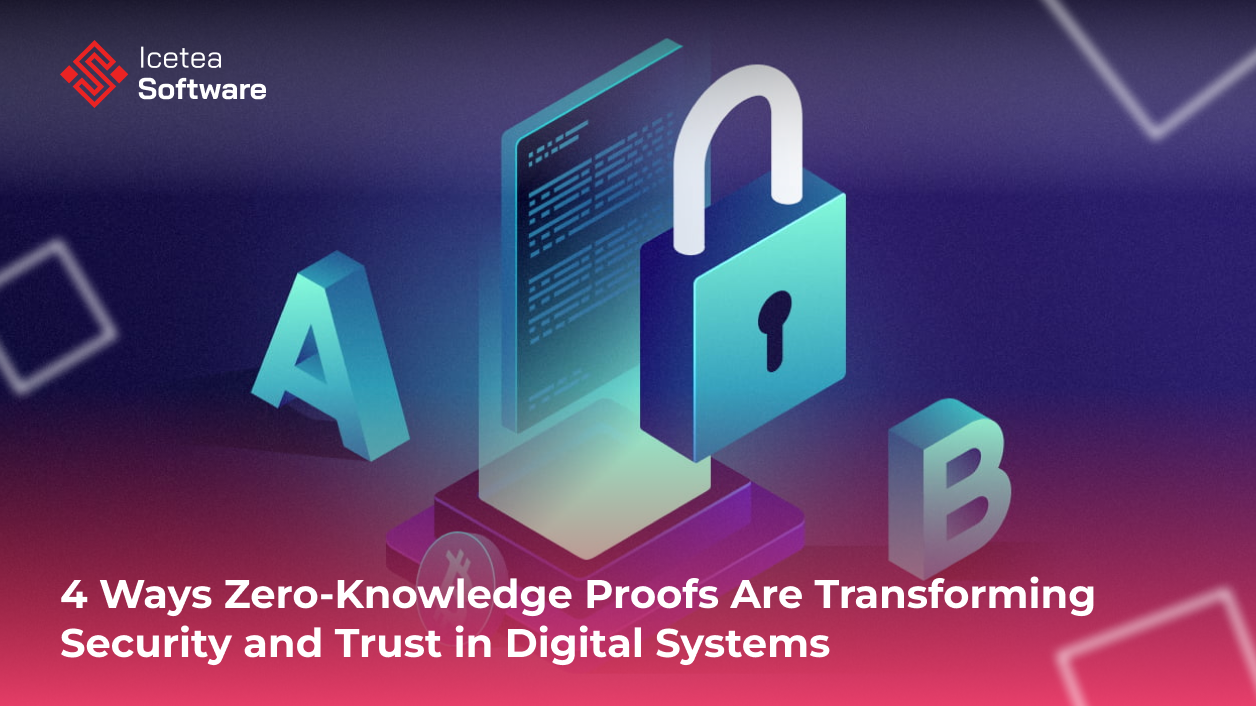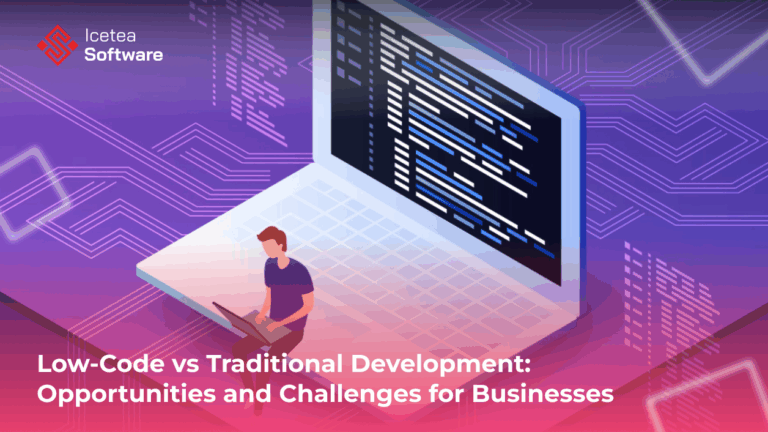4 Ways Zero-Knowledge Proofs Are Transforming Security and Trust in Digital Systems

As we step into the new-tech era, technologies such as blockchain, decentralized finance (DeFi), artificial intelligence (AI), NFTs, and the metaverse are rapidly reshaping industries and user experiences. These innovations are built upon openness, decentralization, and trustless interaction. However, they also raise a critical paradox: How can we ensure transparency and accountability without compromising privacy and data security?
This challenge has given rise to Zero-Knowledge Proofs (ZKP), one of the most significant breakthroughs in modern cryptography. ZKP is not just a theoretical concept—it is already powering privacy-focused blockchains, scalable rollups, and decentralized identity solutions. Many experts believe it will become the cornerstone of security and privacy in the new-tech era, balancing transparency and confidentiality in ways previously thought impossible.
What is Zero-Knowledge Proof?
At its core, Zero-Knowledge Proof (ZKP) is a cryptographic protocol that allows one party, called the prover, to demonstrate to another party, the verifier, that a given statement is true without revealing any other information beyond the truth of the statement itself.
This concept was introduced in the 1980s by cryptographers Shafi Goldwasser, Silvio Micali, and Charles Rackoff. Since then, it has evolved from an academic concept into a practical solution reshaping industries.
Simple Analogy
Imagine you want to prove you know the password to a locked door without actually saying the password. With ZKP, you can show that you can enter the door (proving knowledge) without disclosing the actual password (the underlying data).
This ability to “prove without revealing” has endless potential in finance, governance, healthcare, supply chains, and beyond.
Why ZKP is Essential in the New-Tech Era
1. Balancing Transparency and Privacy
Traditional blockchains like Bitcoin and Ethereum are highly transparent—every transaction is public. While this enhances trust, it also exposes users to tracking and profiling. ZKP introduces the ability to validate transactions or data without revealing personal details, creating a perfect balance between openness and privacy.
2. Enhancing Data Security
In a world where cyberattacks and data breaches are on the rise, ZKP ensures sensitive data such as financial records, medical history, or personal credentials remain confidential. Only the validity of the statement is shared—not the data itself.
3. Enabling Scalability
ZKP systems like zk-SNARKs and zk-STARKs compress complex transaction histories into lightweight proofs that can be verified quickly. This not only enhances privacy but also enables blockchains to process thousands of transactions per second, addressing scalability bottlenecks.
4. Trustless Verification
The new-tech era emphasizes decentralization. ZKP eliminates the need for middlemen or third-party auditors by enabling peer-to-peer verification, strengthening the trustless architecture of decentralized ecosystems.
Key Applications of ZKP
1. Private Digital Transactions
Projects such as Zcash use ZKP to enable shielded transactions, allowing users to transfer value while hiding sender, receiver, and transaction amounts. This capability addresses one of the biggest criticisms of public blockchains: lack of privacy.
2. Decentralized Identity (DID) and Self-Sovereign Identity (SSI)
In a digital-first world, identity management is critical. ZKP allows individuals to prove attributes (e.g., “I am over 21,” “I have a university degree,” or “I earn above a certain income”) without disclosing sensitive documents. This is the foundation for self-sovereign identity, where users fully control their digital credentials.
3. Voting and Governance in DAOs
In decentralized autonomous organizations (DAOs), voting must be transparent and verifiable, yet anonymous to prevent coercion or retaliation. ZKP enables secure, private, and verifiable voting systems, ensuring fairness and protecting voter confidentiality.
4. DeFi & Smart Contracts
DeFi platforms handle billions in assets but face risks around transparency and overexposure of financial information. With ZKP, a borrower could prove they have sufficient collateral without revealing their entire wallet. This preserves privacy while enabling trust in lending and borrowing protocols.
5. NFTs, Gaming, and the Metaverse
In the metaverse, ownership and access rights are crucial. ZKP can allow users to prove NFT ownership or access to digital spaces without disclosing their entire wallet, thus protecting privacy while enhancing user experience.
Popular Types of ZKP
- zk-SNARKs (Succinct Non-Interactive Argument of Knowledge)
- Compact, efficient, and widely adopted in blockchain projects.
- Requires a trusted setup phase.
- zk-STARKs (Scalable Transparent Argument of Knowledge)
- Transparent (no trusted setup), quantum-resistant, and highly scalable.
- Gaining popularity in Ethereum scaling solutions.
- Bulletproofs
- Short non-interactive proofs optimized for confidential transactions.
- Popular in privacy-focused projects like Monero.
Current Challenges of ZKP
While ZKP is powerful, it still faces challenges:
- High Computational Costs
Proof generation can be resource-intensive, making it less accessible for low-power devices.
- Complex Development
Implementing ZKP in smart contracts or decentralized apps requires advanced cryptographic expertise, limiting mainstream adoption.
- User Experience
Average users often struggle to understand privacy-preserving technologies. ZKP must be integrated seamlessly into products to gain adoption.
The Future of ZKP in the New-Tech Era
The future of digital systems will likely be built on ZKP-powered frameworks.
- Ethereum Scaling with zk-Rollups
Ethereum faces high gas fees and congestion. zk-Rollups use ZKP to batch thousands of transactions into a single proof, improving efficiency without sacrificing security.
- Enterprise and Government Adoption
Banks, healthcare providers, and even governments may use ZKP to verify data compliance (like KYC or AML) without storing or exposing sensitive data.
- Interoperability Across Blockchains
ZKP can help blockchains verify cross-chain transactions securely without revealing transaction data, fueling multi-chain ecosystems.
- Mainstream User Privacy
As regulations like GDPR emphasize data privacy, ZKP may become the default privacy layer for digital services, giving users more control over their personal data.
Final Thoughts
As the new-tech era accelerates, enterprises, developers, and communities are searching for partners that not only understand cutting-edge technologies but also know how to deploy them effectively in real-world ecosystems. This is where Icetea Software stands out.
Icetea Software is not just another technology provider—it is a strategic enabler of digital transformation. The company has consistently demonstrated its ability to design and deliver solutions across blockchain, Web3 infrastructure, AI-powered platforms, fintech, and immersive digital experiences. In particular, Icetea’s portfolio highlights a strong focus on security, scalability, and user empowerment—values that align closely with the promise of Zero-Knowledge Proof (ZKP) and privacy-first technologies.
By building products and services that embrace both transparency and confidentiality, Icetea Software is addressing one of the biggest dilemmas of the digital age: how to empower innovation while safeguarding trust. Whether it’s supporting decentralized ecosystems, enabling digital finance, or creating seamless user journeys in emerging technologies, Icetea continues to set itself apart as a forward-looking company that designs for both today’s needs and tomorrow’s opportunities.
Furthermore, Icetea Software’s approach reflects an understanding that technology alone is not enough—it must be paired with human-centric design, strong partnerships, and sustainable strategies. This holistic vision positions Icetea not only as a service provider but also as a trusted partner for startups, enterprises, and global organizations seeking to navigate the complex landscape of the new-tech era.
Looking ahead, as Zero-Knowledge Proofs, decentralized identity solutions, and next-gen infrastructure become essential components of digital ecosystems, Icetea Software is well positioned to play a critical role. Its commitment to innovation, adaptability, and user empowerment makes it a company that is not just keeping up with the future—but actively shaping it.
In short, Icetea Software represents the kind of organization that the new-tech era demands: innovative, secure, and deeply committed to building technology that enhances both privacy and progress. Just as ZKP lays the foundation for trust in digital systems, Icetea Software is laying the foundation for trust in how technology is built, scaled, and delivered to the world.
About Icetea Software
Icetea Software is a Vietnam-based technology firm specializing in scalable, secure, and future-ready solutions in Web3, AI, and digital transformation. With operations in Vietnam and Korea, the company supports global enterprises and startups through end-to-end technology services, infrastructure development, and innovation consulting.
𝗜𝗰𝗲𝘁𝗲𝗮 𝗦𝗼𝗳𝘁𝘄𝗮𝗿𝗲 – Revolutionize Your Tech Journey!
Website: iceteasoftware.com
LinkedIn: linkedin.com/company/iceteasoftware
Facebook: Icetea Software
X: x.com/Icetea_software







